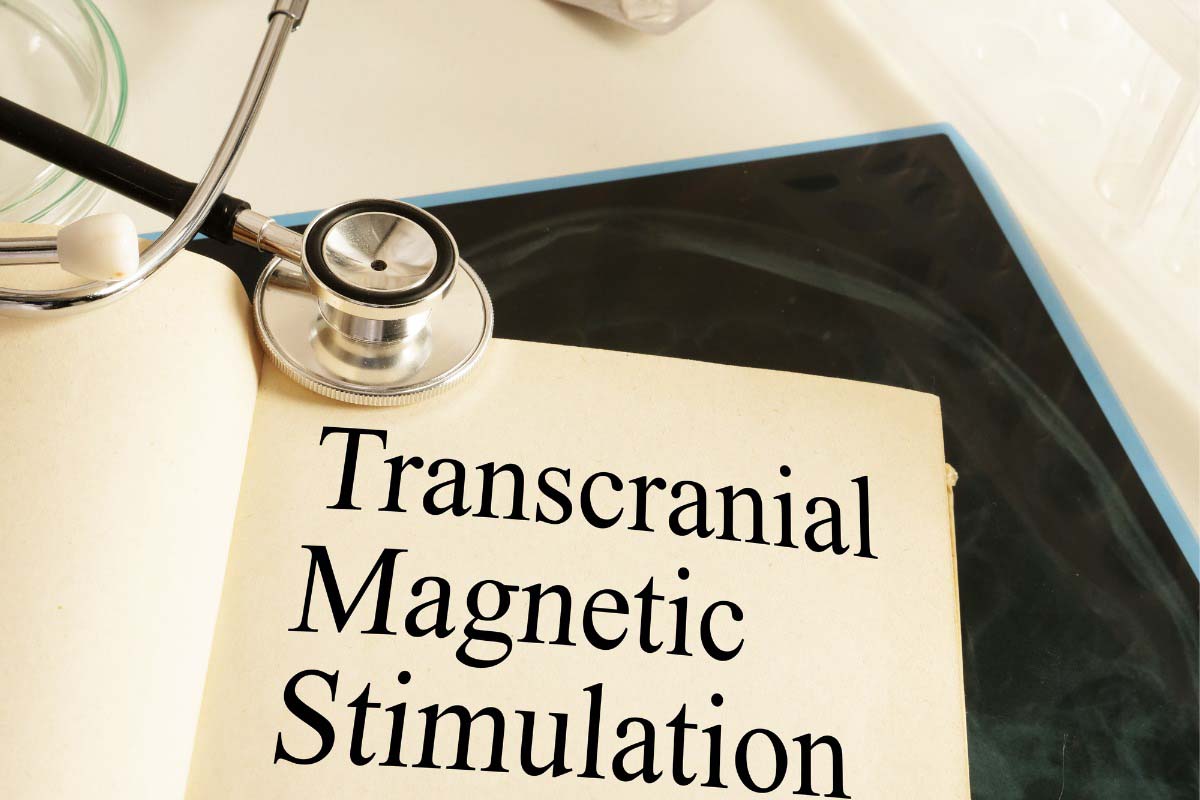Abstract
Objective: In this meta-analysis, we evaluated changes in cognition for patients with schizophrenia spectrum disorders (SSD) with different durations of illness (DOIs).
Data Sources: Records were identified through searches in PubMed, PsycINFO, CINAHL, and Cochrane until December 2021. We used terms related to SSDs, chronicity, course, and recovery.
Study Selection and Data Extraction: We included 57 longitudinal studies, with a follow-up length of at least 1 year, investigating changes in 10 domains of cognition of patients who are all diagnosed with SSD. Changes in cognition were analyzed through effect sizes of change between baseline and follow-up assessments within each study. These changes were evaluated in different subgroups of studies including patients with a DOI <5 years, 5–10 years, or >10 years. We also investigated the influence of 19 potential moderators on these changes in cognition.
Results: We found marginal improvements in overall cognition (d =0.13), small improvements in verbal memory (d = 0.21), processing speed (d = 0.32), marginal improvements in visual memory (d = 0.17), executive functioning (d = 0.19), and language skills (d = 0.13), and no significant improvements in the other cognitive domains. The largest improvements were achieved for patients with a DOI <10 years. Changes are more favorable for patients with a younger age, no schizophrenia diagnosis, female gender, higher education level, and low negative symptom severity.
Conclusions: We observed only modest cognitive improvement in SSD almost exclusively in patients with early psychosis. Future research should focus on optimizing interventions targeting cognition in specific subgroups and the interrelationships with other life domains.
J Clin Psychiatry 2024;85(4):23r15134
Author affiliations are listed at the end of this article.
Members Only Content
This full article is available exclusively to Professional tier members. Subscribe now to unlock the HTML version and gain unlimited access to our entire library plus all PDFs. If you're already a subscriber, please log in below to continue reading.
References (59)

- Tandon R, Nasrallah HA, Keshavan MS. Schizophrenia, “just the facts” 4. Clinical features and conceptualization. Schizophr Res. 2009;110(1–3):1–23. PubMed
- Galderisi S, Davidson M, Kahn RS, et al. Correlates of cognitive impairment in first episode schizophrenia: the EUFEST study. Schizophr Res. 2009;115(2–3):104–114. PubMed CrossRef
- Insel TR. Rethinking schizophrenia. Nature. 2010;468(7321):187–193. PubMed CrossRef
- Zipursky RB, Reilly TJ, Murray RM. The myth of schizophrenia as a progressive brain disease. Schizophr Bull. 2013;39(6):1363–1372. PubMed CrossRef
- Fett AKJ, Viechtbauer W, Dominguez MDG, et al. The relationship between neurocognition and social cognition with functional outcomes in schizophrenia: a meta-analysis. Neurosci Biobehav Rev. 2011;35(3):573–588. PubMed CrossRef
- Halverson TF, Orleans-Pobee M, Merritt C, et al. Pathways to functional outcomes in schizophrenia spectrum disorders: meta-analysis of social cognitive and neurocognitive predictors. Neurosci Biobehav Rev. 2019;105:212–219. PubMed CrossRef
- Lepage M, Bodnar M, Bowie CR. Neurocognition: clinical and functional outcomes in schizophrenia. Can J Psychiatry. 2014;59(1):5–12. PubMed CrossRef
- van Aken BC, Wierdsma AI, Voskes Y, et al. The association between executive functioning and personal recovery in people with psychotic disorders. Schizophr Bull Open. 2022;3(1):sgac023. PubMed CrossRef
- Friedman JI, Harvey PD, McGurk SR, et al. Correlates of change in functional status of institutionalized geriatric schizophrenic patients: focus on medical comorbidity. Am J Psychiatry. 2002;159(8):1388–1394. PubMed CrossRef
- Albus M, Hubmann W, Mohr F, et al. Neurocognitive functioning in patients with first-episode schizophrenia: results of a prospective 15-year follow-up study. Eur Arch Psychiatry Clin Neurosci. 2020;270:689–698. PubMed CrossRef
- Bergh S, Hjorthøj C, Sørensen HJ, et al. Predictors and longitudinal course of cognitive functioning in schizophrenia spectrum disorders, 10 years after baseline: the OPUS study. Schizophr Res. 2016;175(1–3):57–63. PubMed CrossRef
- Mohn C, Torgalsbøen AK. Details of attention and learning change in first episode schizophrenia. Psychiatry Res. 2018;260:324–330. PubMed CrossRef
- Rund BR, Barder HE, Evensen J, et al. Neurocognition and duration of psychosis: a 10-year follow-up of first-episode patients. Schizophr Bull. 2016;42(1):87–95. PubMed
- Szöke A, Trandafir A, Dupont ME, et al. Longitudinal studies of cognition in schizophrenia: meta-analysis. Br J Psychiatry. 2008;192(4):248–257. PubMed
- Bora E, Murray RM. Meta-analysis of cognitive deficits in ultra-high risk to psychosis and first-episode psychosis: do the cognitive deficits progress over, or after, the onset of psychosis? Schizophr Bull. 2014;40(4):744–755. PubMed CrossRef
- Jonas K, Lian W, Callahan J, et al. The course of general cognitive ability in individuals with psychotic disorders. JAMA psychiatry. 2022;79(7):659–666. PubMed
- Friedman JI, Harvey PD, Coleman T, et al. Six-year follow-up study of cognitive and functional status across the lifespan in schizophrenia: a comparison with Alzheimer’s disease and normal aging. Am J Psychiatry. 2001;158(9):1441–1448. PubMed CrossRef
- Bogaty SER, Lee RSC, Hickie IB, et al. Meta-analysis of neurocognition in young psychosis patients with current cannabis use. J Psychiatr Res. 2018;99:22–32. PubMed CrossRef
- Montaner-Ferrer MJ, Gadea M, Sanjuán J. Cognition and social functioning in first episode psychosis: a systematic review of longitudinal studies. Front Psychiatry. 2023;14:1055012. PubMed CrossRef
- de Winter L, Couwenbergh C, van Weeghel J, et al. Changes in social functioning over the course of psychotic disorders–a meta-analysis. Schizophr Res. 2022;239:55–82. PubMed
- de Winter L, Vermeulen JM, Couwenbergh C, et al. Short- and long-term changes in symptom dimensions among patients with schizophrenia spectrum disorders and different durations of illness: a meta-analysis. J Psychiatr Res. 2023;164:416–439. PubMed CrossRef
- Bozikas VP, Andreou C. Longitudinal studies of cognition in first episode psychosis: a systematic review of the literature. Aust N Z J Psychiatry. 2011;45(2):93–108. PubMed CrossRef
- Watson AJ, Harrison L, Preti A, et al. Cognitive trajectories following onset of psychosis: a meta-analysis. Br J Psychiatry. 2022;221(6):714–721. PubMed CrossRef
- Irani F, Kalkstein S, Moberg EA, et al. Neuropsychological performance in older patients with schizophrenia: a meta-analysis of cross-sectional and longitudinal studies. Schizophr Bull. 2011;37(6):1318–1326. PubMed CrossRef
- Page MJ, McKenzie JE, Bossuyt PM, et al. Updating guidance for reporting systematic reviews: development of the PRISMA 2020 statement. J Clin Epidemiol. 2021;134:103–112. PubMed
- American Psychiatric Association. Diagnostic and statistical manual of mental disorders. 5th ed. American Psychiatric Association; 2013.
- Nuechterlein KH, Green MF, Kern RS, et al. The MATRICS consensus cognitive battery, part 1: test selection, reliability, and validity. Am J Psychiatry. 2008;165(2):203–213. PubMed CrossRef
- Keefe RSE, Goldberg TE, Harvey PD, et al. The brief assessment of cognition in schizophrenia: reliability, sensitivity, and comparison with a standard neurocognitive battery. Schizophr Res. 2004;68(2–3):283–297. PubMed CrossRef
- Wechsler D. Wechsler Adult Intelligence Scale. 4th ed. Pearson; 2008.
- Reynolds CR. Wide Range achievement test (WRAT—r):1984 edition. J Couns Development. 1986;64(8):540–541.
- Harvey PD. Domains of cognition and their assessment. Dialogues Clin Neurosci. 2019;21(3):227–237. PubMed CrossRef
- McGorry PD, Nelson B, Goldstone S, et al. Clinical staging: a heuristic and practical strategy for new research and better health and social outcomes for psychotic and related mood disorders. Can J Psychiatry. 2010;55(8):486–497. PubMed CrossRef
- Puig O, Fisher M, Loewy R, et al. Early-versus adult-onset schizophrenia as a predictor of response to neuroscience-informed cognitive training. J Clin Psychiatry. 2020;81(2):18m12369. PubMed CrossRef
- Ventura J, Wood RC, Hellemann GS. Symptom domains and neurocognitive functioning can help differentiate social cognitive processes in schizophrenia: a meta-analysis. Schizophr Bull. 2013;39(1):102–111. PubMed CrossRef
- Borenstein M, Higgins JPT. Meta-analysis and subgroups. Prev Sci. 2013;14(2):134–143. PubMed CrossRef
- Hayden JA, van der Windt DA, Cartwright JL, et al. Assessing bias in studies of prognostic factors. Ann Intern Med. 2013;158(4):280–286. PubMed CrossRef
- The Nordic Cochrane Centre. Review Manager (RevMan) [Computer program]. Version 5.3. Copenhagen: The Nordic Cochrane Centre. The Cochrane Collaboration; 2014.
- Chinn S. A simple method for converting an odds ratio to effect size for use in meta-analysis. Stat Med. 2000;19:3127–3131. PubMed CrossRef
- Higgins JP. Cochrane handbook for systematic reviews of interventions version 5.0.1. The Cochrane Collaboration; 2008. http://www.cochrane-handbook.org
- R Core Team. R: A Language and Environment for Statistical Computing. R Foundation for Statistical Computing; 2016. https://www.R-project.org/.
- Duff K, Beglinger LJ, Van Der Heiden S, et al. Short-term practice effects in amnestic mild cognitive impairment: implications for diagnosis and treatment. Int Psychogeriatr. 2008;20(5):986–999. PubMed CrossRef
- Goldberg TE, Keefe RSE, Goldman RS, et al. Circumstances under which practice does not make perfect: a review of the practice effect literature in schizophrenia and its relevance to clinical treatment studies. Neuropsychopharmacology. 2010;35(5):1053–1062. PubMed CrossRef
- Brovelli A, Laksiri N, Nazarian B, et al. Understanding the neural computations of arbitrary visuomotor learning through FMRI and associative learning theory. Cereb Cortex. 2008;18(7):1485–1495. PubMed CrossRef
- Skavronskaya L, Moyle B, Scott N. The experience of novelty and the novelty of experience. Front Psychol. 2020;11:322. PubMed
- Fett AKJ, Velthorst E, Reichenberg A, et al. Long-term changes in cognitive functioning in individuals with psychotic disorders: findings from the Suffolk County Mental Health Project. JAMA psychiatry. 2020;77(4):387–396. PubMed
- Maitland SB, Intrieri RC, Schaie WK, et al. Gender differences and changes in cognitive abilities across the adult life span. Aging Neuropsychology, Cognition. 2000;7(1):32–53.
- Aartsen MJ, Martin M, Zimprich D, et al. Gender differences in level and change in cognitive functioning. Results from the Longitudinal Aging Study Amsterdam. Gerontology. 2004;50(1):35–38. PubMed CrossRef
- Bucci P, Giordano GM, Mucci A, et al. Sex and gender differences in clinical and functional indices in subjects with schizophrenia and healthy controls: data from the baseline and 4-year follow-up studies of the Italian Network for Research on Psychoses. Schizophr Res. 2023;251:94–107. PubMed CrossRef
- Li AW, Hui CL, Lee EH, et al. Gender differences in correlates of cognition in first episode psychosis. Psychiatry Res. 2019;271:412–420. PubMed CrossRef
- Hyman SE, Fenton WS. Medicine. What are the right targets for psychopharmacology? Science. 2003;299(5605):350–351. PubMed CrossRef
- Benjamini Y, Hochberg Y. Controlling the false discovery rate: a practical and powerful approach to multiple testing. J R Stat Soc Ser B Methodol. 1995;57(1):289–300.
- Zanelli J, Mollon J, Sandin S, et al. Cognitive change in schizophrenia and other psychoses in the decade following the first episode. Am J Psychiatry. 2019;176(10):811–819. PubMed CrossRef
- Liu Y, Lachman ME. Education and cognition in middle age and later life: the mediating role of physical and cognitive activity. J Gerontol B Psychol Sci Soc Sci. 2020;75(7):e93–e104. PubMed CrossRef
- Barnett JH, Salmond CH, Jones PB, et al. Cognitive reserve in neuropsychiatry. Psychol Med. 2006;36(8):1053–1064. PubMed CrossRef
- Herrero P, Contador I, Stern Y, et al. Influence of cognitive reserve in schizophrenia: a systematic review. Neurosci Biobehav Rev. 2020;108:149–159. PubMed CrossRef
- Foussias G, Agid O, Fervaha G, et al. Negative symptoms of schizophrenia: clinical features, relevance to real world functioning and specificity versus other CNS disorders. Eur Neuropsychopharmacol. 2014;24(5):693–709. PubMed CrossRef
- Lim J, Lee SA, Lam M, et al. The relationship between negative symptom subdomains and cognition. Psychol Med. 2016;46(10):2169–2177. PubMed CrossRef
- Böhning D, Lerdsuwansri R, Holling H. Some general points on the I 2-measure of heterogeneity in meta-analysis. Metrika. 2017;80(6–8):685–695.
- Sheffield JM, Karcher NR, Barch DM. Cognitive deficits in psychotic disorders: a lifespan perspective. Neuropsychol Rev. 2018;28:509–533. PubMed CrossRef





